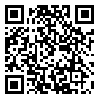Volume 8, Issue 4 (2-2021)
jmsthums 2021, 8(4): 66-74 |
Back to browse issues page
Download citation:
BibTeX | RIS | EndNote | Medlars | ProCite | Reference Manager | RefWorks
Send citation to:



BibTeX | RIS | EndNote | Medlars | ProCite | Reference Manager | RefWorks
Send citation to:
A H, E G. Emancipatory knowing: Hidden necessity. jmsthums 2021; 8 (4) :66-74
URL: http://jms.thums.ac.ir/article-1-844-en.html
URL: http://jms.thums.ac.ir/article-1-844-en.html
1- shhad, Iran 2. PhD Candidate in nursing, School of Nursing and Midwifery, Mashhad University of Medical Sciences, Mashhad, Iran
2- Nursing and Midwifery Care Research Center, Mashhad University of Medical Sciences, Mashhad, Iran
2- Nursing and Midwifery Care Research Center, Mashhad University of Medical Sciences, Mashhad, Iran
Abstract: (4238 Views)
Background & Aim: Knowledge patterns in nursing are key foundation elements for the development of knowledge and practice. Carper identified four fundamental knowledge patterns; empirical, personal, ethical and aesthetic. Chain and Kramer added the pattern of emancipatory knowledge to Carper's patterns. The pattern of emancipatory knowledge in nursing has been neglected. The aim of this study was to familiarize nurses and nursing researchers with the pattern of emancipatory knowledge in nursing.
Methods: This study was one of the types of non-systematic narrative review articles. First the keywords Emancipatory, knowing, knowledge, education, research, practice, caring, nursing were defined based on the mesh system and using "AND" and "OR". Search ISI, PubMed, Scopus, and Google Scholar. Finally, the search results included 7 books and 17 articles in the field of nursing knowledge patterns, philosophy, knowledge patterns, education, research and clinical practice of emancipatory knowledge.
Results: Emancipatory knowing in nursing means questioning the nature of knowledge and the ways in which knowledge itself—or what is taken to be knowledge—contributes to larger social problems. The nurse critically addresses the issues facing the patient to correct social structures.
Conclusion: The use of Emancipatory knowledge gives nurses the opportunity to take fair and equitable measures to improve the health of communities.
Methods: This study was one of the types of non-systematic narrative review articles. First the keywords Emancipatory, knowing, knowledge, education, research, practice, caring, nursing were defined based on the mesh system and using "AND" and "OR". Search ISI, PubMed, Scopus, and Google Scholar. Finally, the search results included 7 books and 17 articles in the field of nursing knowledge patterns, philosophy, knowledge patterns, education, research and clinical practice of emancipatory knowledge.
Results: Emancipatory knowing in nursing means questioning the nature of knowledge and the ways in which knowledge itself—or what is taken to be knowledge—contributes to larger social problems. The nurse critically addresses the issues facing the patient to correct social structures.
Conclusion: The use of Emancipatory knowledge gives nurses the opportunity to take fair and equitable measures to improve the health of communities.
Type of Study: Applicable |
Subject:
Special
Received: 2020/10/7 | Accepted: 2021/01/23 | Published: 2021/04/8
Received: 2020/10/7 | Accepted: 2021/01/23 | Published: 2021/04/8
Send email to the article author
| Rights and permissions | |
 | This work is licensed under a Creative Commons Attribution-NonCommercial 4.0 International License. |






